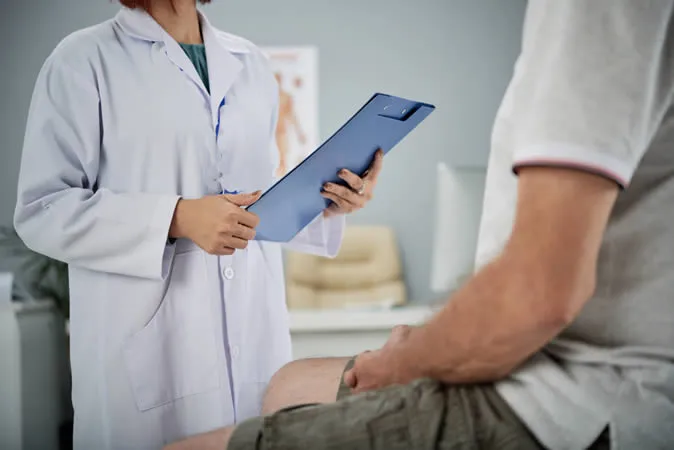What is Pemphigus Vulgaris?
Pemphigus vulgaris is a rare chronic blistering skin disease that affects the skin and mucous membranes, such as the mouth, nose, throat, genitals and anus. It is caused by an autoimmune reaction, in which the body produces antibodies that attack the cells that hold the skin layers together. This results in blisters and sores that are painful and prone to infection.

What are the signs and symptoms of Pemphigus Vulgaris?
The signs and symptoms of pemphigus vulgaris are:
- Fluid-filled blisters that start in the mouth or skin areas.
- Skin blisters near the surface of the skin that come and go.
- Oozing, crusting, or peeling at the blister site.
- Pain on or around the blisters.
- Infection of the blisters, which may cause pus, fever, swelling, or increased pain.
What are the causes of Pemphigus Vulgaris?
Pemphigus vulgaris is not contagious, which means it cannot be spread from person to person. The exact trigger for the immune system to produce these antibodies is unknown, but some possible factors that may contribute to pemphigus vulgaris include:
- Genetic factors: Some people may have a genetic predisposition to develop pemphigus vulgaris, especially those of Jewish or Mediterranean descent.
- Environmental factors: Some substances or conditions that may irritate or damage the skin, such as sunlight, chemicals, infections, or stress, may trigger or worsen pemphigus vulgaris.
- Medications: Some drugs, such as penicillamine, captopril, enalapril, and some antibiotics, may induce or aggravate pemphigus vulgaris in some people.
What treatments are available at the dermatologist for Pemphigus Vulgaris?
Pemphigus vulgaris is a serious skin condition that requires treatment from a dermatologist. Some of the treatments that are available at the dermatologist for pemphigus vulgaris are:
- Corticosteroids: These are medications that reduce inflammation and suppress the immune system. They can be applied as creams or ointments on the skin, or taken as pills or injections.
- Steroid-sparing immunosuppressants: These are medications that also suppress the immune system, but have less side effects than corticosteroids. They can be used alone or in combination with corticosteroids to lower the dose and duration of steroid treatment.
- Intravenous immunoglobulin (IVIG): This is a treatment that involves infusing antibodies from donated blood into the bloodstream. It can help block the harmful antibodies that cause pemphigus vulgaris and reduce the severity of symptoms.
- Other medications: These include drugs that may help with specific symptoms or complications of pemphigus vulgaris, such as painkillers, antibiotics, antiseptics, antifungals, and anti-inflammatory agents.

FAQ About Pemphigus Vulgaris
How is pemphigus vulgaris diagnosed?
Pemphigus vulgaris is diagnosed by a dermatologist (a doctor who specializes in skin diseases). The diagnosis is based on the appearance of the blisters and sores, the medical history of the patient, and some tests.
How common is pemphigus vulgaris?
Pemphigus vulgaris is a rare disease that affects about one to five people per million population per year worldwide. The prevalence (the number of people who have the disease at a given time) varies depending on the region and ethnicity.
Is pemphigus vulgaris contagious?
No, pemphigus vulgaris is not contagious. It cannot be spread from person to person by contact with the blisters or sores. Pemphigus vulgaris is an autoimmune disease that occurs when the body’s own immune system attacks the skin cells.
Is there a dermatologist near me in Granada Hills that offers treatment for pemphigus vulgaris?
Yes. At our Granada Hills dermatology office we offer treatment for pemphigus vulgaristo patients from Granada Hills and the surrounding area. Contact our office today to schedule an appointment.


